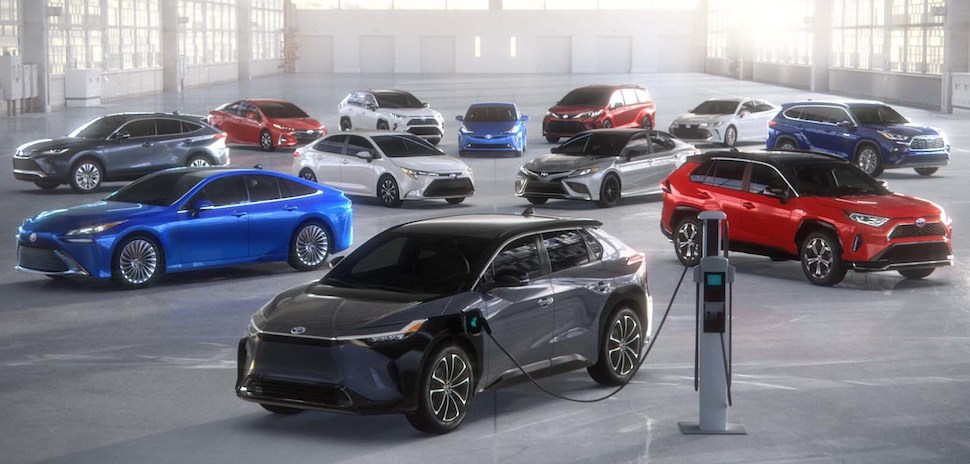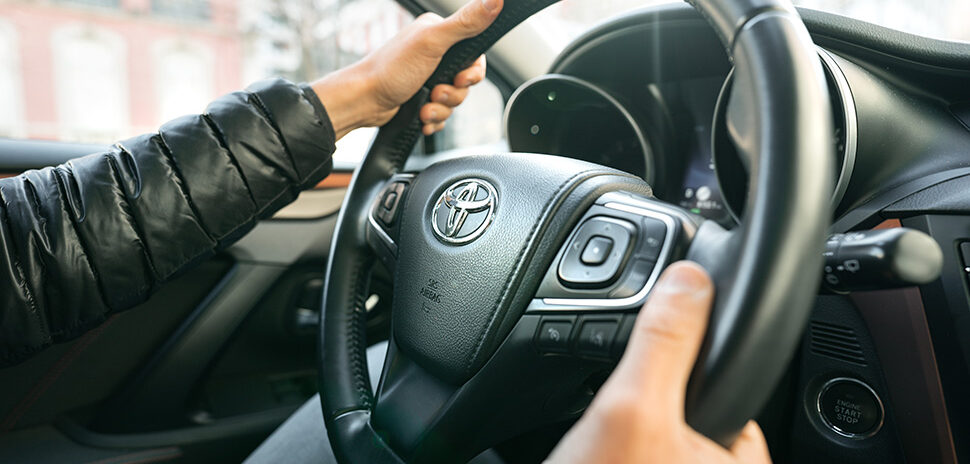Toyota is charging into battery production in the U.S., placing a multi-billion-dollar bet that electrification is the way of the automotive future.
If we’re truly moving toward an EV-driven landscape in the decades to come, we’re going to need a heck of a lot more batteries. Plano-based Toyota Motor North America announced today it’s investing $3.4 billion through 2030 to develop and localize automotive battery production in the U.S.
The move is part of the $13.5 billion global effort announced last month by Toyota Motor Corp.
Toyota will invest $1.29B to build and run a U.S. battery plant
We’ve all seen how global supply chains have been disrupted in the last year and a half. One way around that is localization. If batteries are built in the U.S., they won’t be floating around for weeks in the Los Angeles harbor waiting to get into port.
Toward that end, Toyota announced today it will form a new company and build an automotive battery plant in the U.S. with Toyota Tsusho. It plans to invest $1.29 billion in that project alone through 2031, with battery production starting in 2025.
That investment will include funds for developing land and building facilities, resulting in 1,750 new U.S. jobs, the company says.
Could the plant end up in Texas?
Details on the plant’s location, production capacity, and business structure will be announced “at a future time,” Toyota said today. But with the company’s North American headquarters in the Dallas area and $3.9 billion invested in San Antonio’s Toyota Tundra and Tacoma plant, Toyota already has a strong Texas accent.
Waiting to hear if the Toyota battery plant will be sited in Texas is a familiar feeling. In August, Bloomberg News reported that Amazon-backed Rivian Automotive, the Irvine, CA-based electric vehicle startup, could potentially invest around $5 billion to build a factory near Fort Worth. The factory would produce 200,000 vehicles a year and create some 7,500 jobs by 2027. Bloomberg said the North Texas site “has become the front-runner for Rivian.”
If both plants end up in Texas, the Lone Star State would become a U.S. leader in automotive electrification. Stay tuned.
‘Ushering in more affordable electrified vehicles’
Ted Ogawa, CEO of Toyota Motor North America, said that today’s announced moves have multiple goals.
“Toyota’s commitment to electrification is about achieving long-term sustainability for the environment, American jobs, and consumers,” Ogawa said in a statement. “This investment will help usher in more affordable electrified vehicles for U.S. consumers, significantly reduce carbon emissions, and importantly, create even more American jobs tied to the future of mobility.”
Advancing toward carbon neutrality
The new projects will help Toyota develop and expand its local supply chain and production knowledge around lithium-ion automotive batteries. The venture’s first focus will be producing batteries for hybrid electric vehicles.
On a bigger scale, the projects are expected to advance Toyota’s goals of moving towards carbon neutrality “in a sustainable and practical way.”
Some facts about Toyota’s electrification efforts
- Toyota has sold more than 18.7 million electrified vehicles, including over 4.5 million in the U.S.
- Electrified vehicles now account for nearly 25 percent of Toyota’s U.S. sales volume; by 2030 that’s expected to rise to nearly 70 percent.
- To meet growing demand, Toyota is steadily expanding its lineup of electrified vehicles—including hybrid, plug-in hybrid, fuel cell (FCEV), and battery electric vehicles (BEV)—from 55 models today to about 70 models by 2025.
- Of the 70 models, 15 will be BEVs, including seven Toyota bZ (Beyond Zero) models.
- By 2030, Toyota expects to sell two million zero-emission vehicles (BEVs and FCEVs) globally, and in the U.S., the company expects to sell between 1.5 million to 1.8 million electrified vehicles, including ZEV models.
![]()
Get on the list.
Dallas Innovates, every day.
Sign up to keep your eye on what’s new and next in Dallas-Fort Worth, every day.































